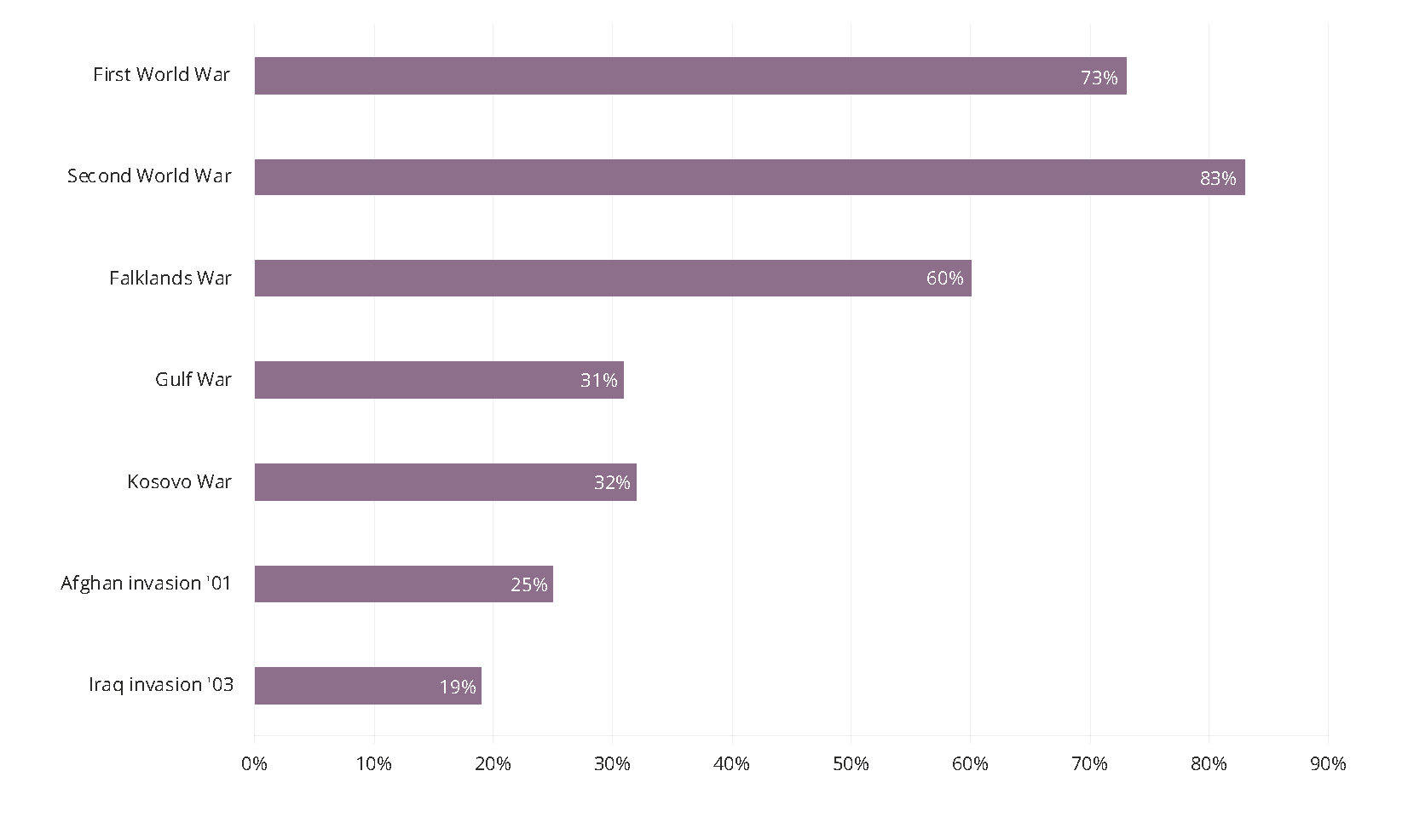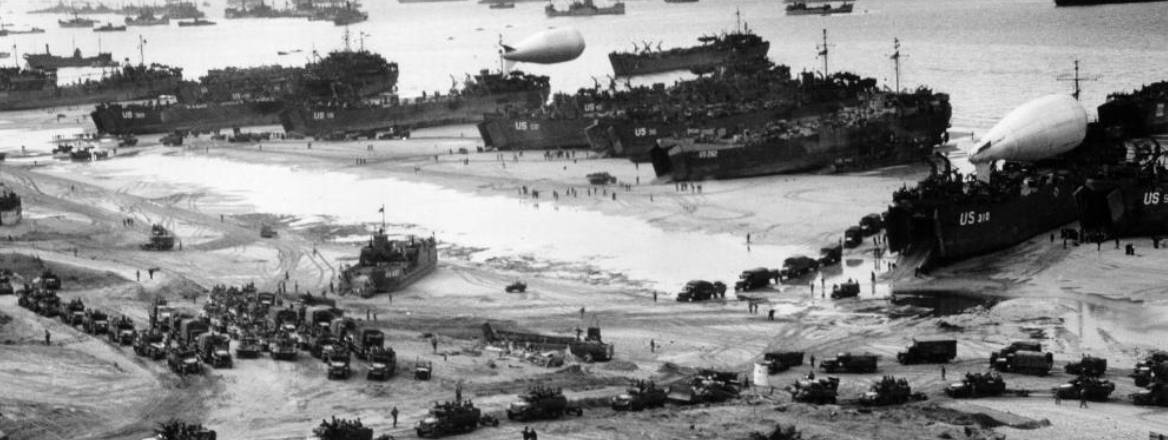British Public Attitudes Towards the Second World War
A new survey of the British public shows both profound reverence and some striking ignorance towards Britain’s involvement in the Second World War.
The Second World War is deeply ingrained in the national psyche, it seems, but not so much in Britain’s general knowledge. This is according to new research by the YouGov-Cambridge Centre and RUSI.
The survey was fielded to a national sample of the British public, with results discussed at a RUSI Whitehall event on 30 May. The event, held in advance of the 75th anniversary on 6 June, focused on lessons from the Battle for Normandy.
Respondents were first shown a list of conflicts and asked to say whether UK military involvement was generally justified or not. The Second World War came a clear first in terms of historical endorsement, with 83% describing the country’s involvement as justified. This was even higher than the 73% overall who said the same about the First World War. In both cases, there were large majorities regardless of variables such as age, gender, social grade or political preference.
As findings further show, the historical popularity of British wars generally decreases over time after 1945. A comparatively smaller 60% described the Falklands War as justified, while only 31% overall thought UK involvement in the Gulf War was justified, with 32% saying the same for the Kosovo War, 25% for the invasion of Afghanistan in 2001, and 19% for the invasion of Iraq in 2003.
Figure 1: Which Military Actions Were Justified? (% Saying UK Military Involvement in the Following was Justified)

While the Second World War stands out for its veneration, however, the results indicated some notable gaps in public knowledge about it.
When asked ‘Who were the Allied Forces fighting on D-Day?’, only 57% of respondents correctly chose Germany from a list of suggested enemies. Nearly a third (28%) said the ‘United Kingdom and its empire’ and a quarter (24%) chose the US, suggesting terms such as ‘Allied’ and ‘Axis’ powers have long since retreated from social memory about the conflict. Similarly, by far the larger portion (43%) thought the UK contributed most troops to the Allied effort on D-Day, compared with 31% choosing the US. Another 18% said they ‘Don’t know’.
Perhaps even more strikingly, only about half of people could say what the term D-Day ‘usually refers to in history’, with 49% choosing ‘The beginning of the Allied liberation of Europe’. In contrast, the other half of respondents chose a mixture of other options, including: the day ‘when Nazi Germany surrendered to Allied Forces’; the ‘UK evacuation of France’; the day ‘when Nazi Germany was expected to invade the United Kingdom’; the day ‘when the United Kingdom declared war on Nazi Germany’; ‘the American response to the attack on Pearl Harbour’; along with ‘None of these’ and ‘Don’t know’.
Table 1: Respondent Answers to the Question ‘Which one of the following would you say best describes what the term “D-Day” usually refers to in history’? (%)

The importance of the Normandy Landings to the course of history can hardly be overstated. Operation Overlord, as it was also known, successfully forged a new, Western front against the Nazi war machine, and duly marked the beginning of the end for Adolf Hitler’s vision of a fascist empire at the centre of the developed world. Over 4,000 Allied troops were lost on the day itself, in what was the largest naval, air and land operation in history, with unprecedented cooperation between international armed forces. Once upon a time in Britain, it would have been inconceivable that half the country might not even know what it was. Perhaps, therefore, these results offer an important message at a time when the UK is looking to re-define its relationship with the international community: that the vital purpose of anniversaries such as D-Day is not just to remember, but also to re-educate, about how the modern Western alliance came to be, and what it still stands for.
Joel Faulkner Rogers
Joel is an Associate Fellow at RUSI.
The views expressed in this article are those of the author, and do not represent those of RUSI or any other institution.
Methodology: Fieldwork was conducted online between 14–15 May 2019 total sample size was 1,765 British adults; the results have been weighted and those including the whole sample are representative of all British adults aged 18+. The full results can be viewed here.
MORE: D-Day 75th Anniversary
WRITTEN BY
Joel Rogers de Waal
Associate Fellow


